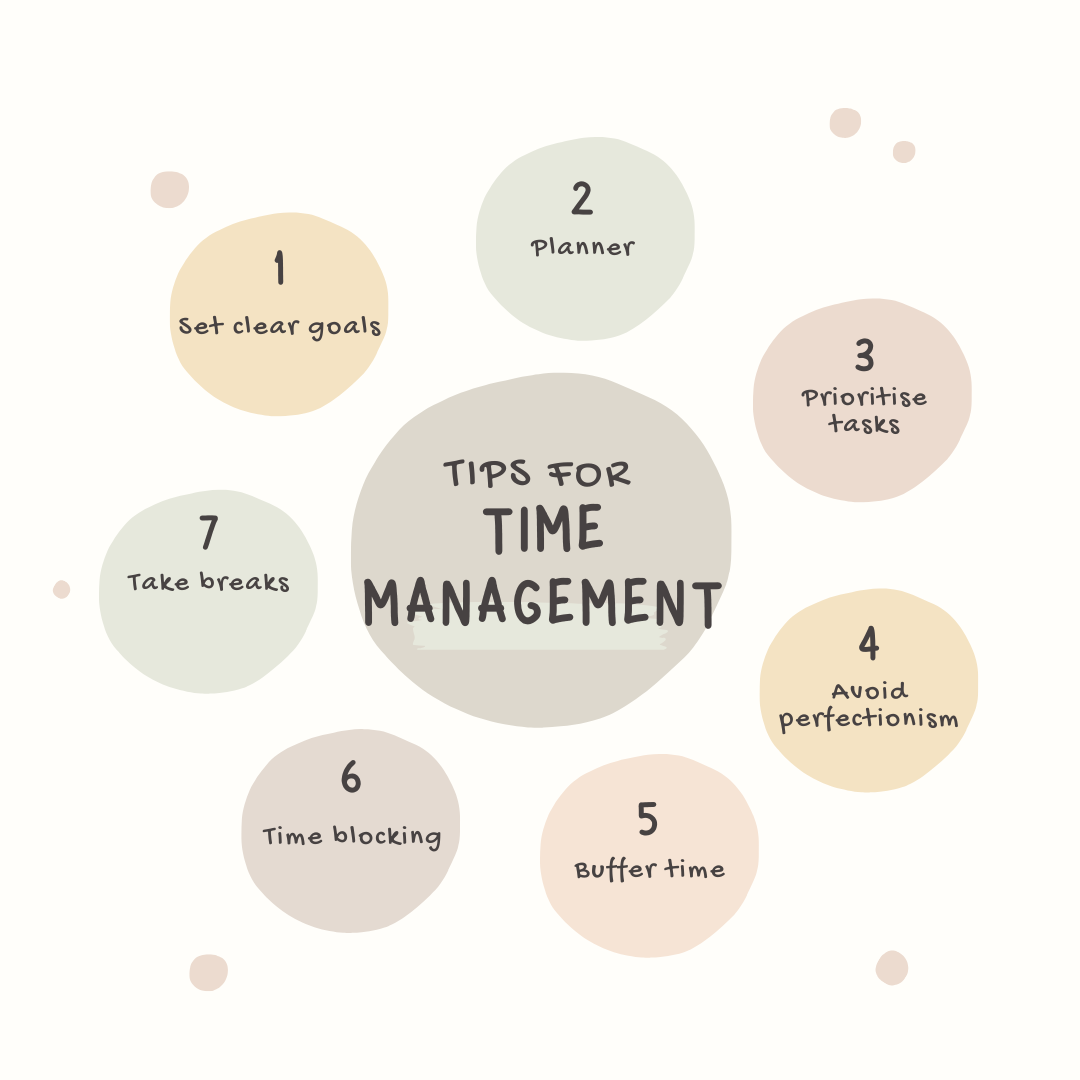Pursuing a PhD is often likened to running a marathon. It’s not a sprint, but a long, winding journey that demands endurance, strategy, and careful pacing. At the heart of this journey lies time management, a skill that can make or break your success. Yet, many doctoral candidates underestimate its importance, leading to stress, missed deadlines, and even burnout. In this post, we’ll delve into the importance of time management during your PhD, offer practical tips to keep you on track, highlight common pitfalls, and explore how academic coaching can make a world of difference.
Why Time Management Matters in a PhD
A PhD is not just about conducting research—it’s about balancing a multitude of responsibilities. You may be juggling lab work, teaching commitments, conference presentations, and writing deadlines, all while attempting to maintain some semblance of a personal life. Effective time management helps you:
- Stay Organised: Keeping track of deadlines, milestones, and tasks ensures nothing falls through the cracks.
- Reduce Stress: A clear plan makes the workload feel more manageable, preventing last-minute panics.
- Maximise Productivity: Allocating your time wisely allows you to focus on what truly matters—your research.
- Maintain Work-Life Balance: Structuring your time ensures you can pursue your PhD without sacrificing personal wellbeing.

Tips for Effective Time Management During Your PhD
- Set Clear Goals
Break your PhD into smaller, manageable chunks with specific objectives. For instance, aim to draft a chapter by a certain date or complete a set of experiments within a given timeframe. These smaller goals make the overall project less daunting. - Use a Planner or Digital Tool
Whether you prefer a traditional planner or apps like Trello, Asana, or Google Calendar, having a system to track tasks and deadlines is invaluable. Colour-code your commitments to distinguish between research, teaching, and personal time. - Prioritise Tasks
Learn to differentiate between what’s urgent and what’s important. The Eisenhower Matrix—a tool for categorising tasks by urgency and importance—can help you decide where to focus your energy. - Avoid Perfectionism
Striving for perfection is a common pitfall among PhD students. Remember, it’s better to submit something that’s 80% perfect on time than to miss a deadline while chasing unattainable perfection. - Build in Buffer Time
Life happens, and tasks often take longer than anticipated. Add buffer time to your schedule to accommodate unexpected delays without derailing your plans. - Practice Time Blocking
Dedicate specific blocks of time to particular activities. For example, reserve mornings for writing, afternoons for lab work, and evenings for relaxation. This approach helps you stay focused and minimises task-switching. - Take Breaks
Working non-stop may seem productive, but it often leads to burnout. Incorporate regular breaks into your routine to recharge and maintain long-term productivity.
Common Pitfalls to Avoid
- Procrastination: It’s easy to put off challenging tasks, but procrastination often leads to unnecessary stress.
- Overloading Your Schedule: Saying “yes” to too many commitments can leave you stretched thin and unable to perform at your best.
- Neglecting Personal Time: While your PhD is important, so is your wellbeing. Don’t sacrifice hobbies, exercise, or time with loved ones.
- Failing to Adapt: Your schedule is a living document—be prepared to revise it as priorities shift or unexpected challenges arise.
How Academic Coaching Can Help
Academic coaching can be a game-changer for your time management skills. A coach works with you to develop personalised strategies tailored to your unique needs and challenges. They can help you:
- Create a Realistic Timeline: Coaches assist in setting achievable milestones and deadlines, ensuring you stay on track without feeling overwhelmed.
- Prioritise Effectively: With guidance, you’ll learn how to identify which tasks require immediate attention and which can wait.
- Stay Accountable: Regular check-ins with a coach provide motivation and ensure you follow through on your plans.
- Overcome Roadblocks: Coaches help you identify and tackle any habits or obstacles that hinder your productivity.
- Maintain Balance: A coach can help you integrate time for self-care, ensuring you remain both productive and healthy throughout your PhD journey.
Conclusion
Time management is the backbone of a successful PhD. By setting clear goals, prioritising tasks, and using tools to stay organised, you can make the process smoother and more manageable. However, even the best-laid plans can falter without support. That’s where academic coaching comes in—providing the guidance, structure, and accountability you need to turn your PhD marathon into a rewarding journey. If you’re struggling with time management or want to refine your approach, consider reaching out for academic coaching and take the first step towards achieving your goals.